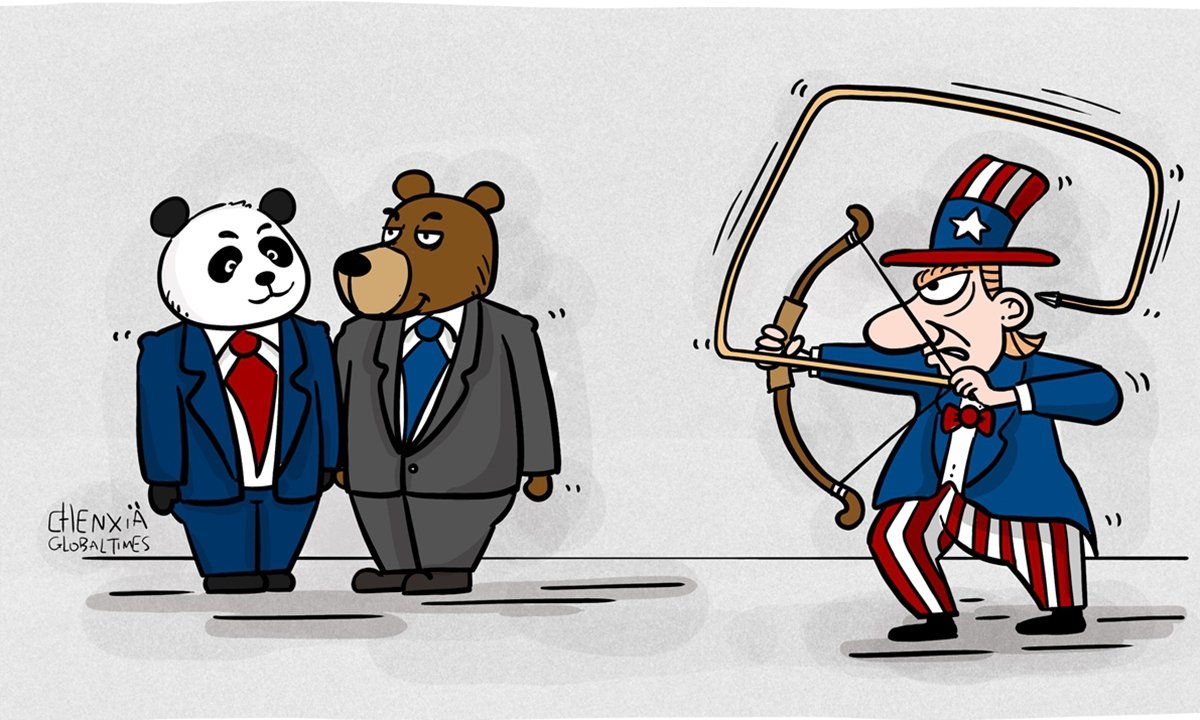Chinese State Councilor and Defense Minister Li Shangfu’s recent sojourns to Russia signal the countries’ mutual goal of ensuring stability in Eurasia.
On Monday, Li embarked on his latest journey to Russia, marking his presence at the 11th Moscow Conference on International Security. This closely follows his April meeting with Russian President Vladimir Putin, highlighting the intensified diplomacy between the two countries.
Wang Xianhua, the deputy director of the Center for Russian Studies, jointly operated by Renmin University of China and St. Petersburg State University, shared insights with the Global Times. He posited that the focus of these meetings is to foster peace and facilitate collaboration. In discussions surrounding the Russia-Ukraine situation, China’s stance leans toward peaceful dialogue as the solution, he explained.
However, Western media outlets have chosen to interpret these diplomatic gestures through a rather cynical lens. Recollections from Li’s maiden visit to Russia earlier this year show that their narratives have not only persisted but have grown more negative. For instance, the Associated Press suggested that Li’s visits support nations marginalized by the West due to the Ukraine conflict. Further, they view the visits as an intent by both nations to align their foreign policies against the democratic ideals of the West, regardless of the economic and reputational implications.
It’s imperative to clear the air regarding such interpretations. Contrary to such reports, Li’s visits aren’t driven by the Russia-Ukraine tension, nor are they an attempt by China to dismantle the liberal-democratic world structure spearheaded by the West. A look at historical patterns will reveal that the Chinese defense minister’s attendance at the Moscow Conference on International Security has been a regular occurrence. This is part of the ongoing military cooperation between Russia and China, which is standard practice for the two nations.
Li’s visit, in essence, is an evolution and enhancement of the established Russia-China rapport. The strategic partnership between these two countries has always remained steadfast, with military collaborations proceeding as planned. Thus, over-analyzing or exaggerating the significance of such visits isn’t warranted. The sensationalism surrounding these meetings, especially from Western media, seems to be a combination of misguided theories and an unjust critique of China.
The frequency of dialogues between China and Russia can be seen as a direct response to regional tensions, indicating the need to strengthen strategic mutual trust and collaboration. Given the dynamic political landscape, the consistent engagement between these two powerhouses becomes even more crucial. As permanent members of the United Nations Security Council and influential participants in G20, APEC, and other pivotal regional and global forums, both countries have displayed a firm commitment to bolstering multilateral collaborations. Their voices have consistently echoed in international corridors, advocating for emerging and developing nations to have a larger say in global matters. This proactive stance solidifies their position as crucial players in refining the international order, endorsing global and regional growth, and ensuring the security of member nations.
Given the Russia-Ukraine conflict, the West’s apprehension regarding the Sino-Russian relationship is, to some extent, comprehensible. However, the continuous casting of doubts and aspersions upon every instance of interaction between China and Russia hints at a more profound intention: to sow discord between the two nations. What the West might fail to recognize is that a deeper China-Russia alliance augments the prospects of peace and stability across the Eurasian continent. This aligns perfectly with the essence of Li’s trips to Russia.
In summary, while the media, especially from the West, may choose to view the growing ties between China and Russia with suspicion, the reality is clear. The consistent and growing collaboration between the two nations reflects their shared goal of ensuring stability and peace in Eurasia. As with any international alliance, it’s crucial to approach these developments with an open mind, understanding the broader goals at play, rather than focusing on divisive narratives.
Read More:
